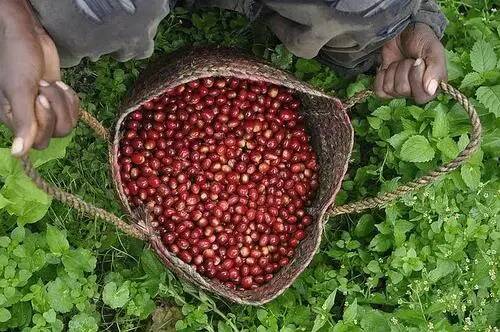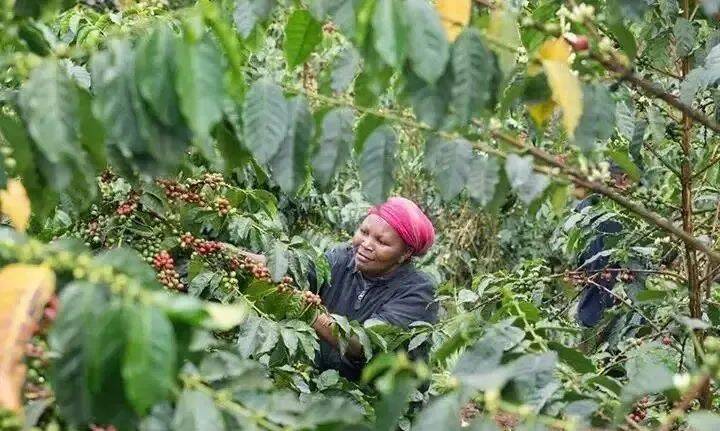Kenya has invested 6 billion dollars to support coffee cultivation, hoping to increase production and work with the Rainforest Alliance to certify compliance with EU regulations.
Currently, Kenya produces 51000 metric tons of coffee a year, but the Kenyan government hopes to increase production through a number of strategic measures. It is hoped that an increase of 49000 metric tons in coffee production will meet global coffee demand and increase the country's international influence and economic strength.

Recently, a spokesman for the Kenyan Government said that the Government recognized the key role of coffee in Kenya's economic growth and its strong support for the more than 5 million Kenyans involved in the entire coffee value chain, so the Government has taken strategic initiatives to increase production.
As a result, the Kenyan government recently decided to issue 6 billion shillings (US $37.62 million) to support coffee cultivation. The money will be used for coffee and cherry advanced revolving funds and production. The funding will begin in Makueni County and will then be distributed in 37 coffee producing counties, including Machakos, Cajado, Tata Vita, Kirinaga County and Muranga County.

And earlier, a non-governmental organization worked with cooperatives of the Gusii Coffee Farmers' Alliance (GCFCU) to boost coffee production and farmers' incomes. According to the Rainforest Alliance Kenya / Tanzania Regional Director, the NGO has launched the Gusii regenerated Agricultural Landscape (GURAL) Coffee Project to help certify coffee to meet global standards. The Rainforest Alliance is building partnerships to protect and restore forests, biodiversity, improve livelihoods and promote human rights, gender equality and social inclusion. And hope to support tea and coffee growers in adapting and mitigating climate change through nature-based solutions and locally led actions. It was also noted that high demand for coffee and tea in the global market led to 75 per cent of deforestation, fuelled the climate change crisis, and that more than 80 per cent of people in rural areas lived in extreme poverty. So the alliance aims to benefit 1 million farmers through the project by 2030.
Earlier, the EU issued the EU deforestation regulations (EUDR), which do not allow uncertified coffee to be sold in the EU, especially for African countries such as Kenya and Tanzania, where it is more difficult to meet the requirements. So Rainforest Alliance's help is timely, and there will be a partnership in Kenya's Nyamira and Kisii counties to improve local sustainable coffee production, as well as 28 union-affiliated coffee cooperatives, six of which are being piloted. Coffee will be raised to a new level, managing the environment and testing soil fertilizer to determine the right nutrients for growing plants, thereby increasing returns and benefiting farmers. Promote the production of quality and certified coffee, allow it to be sold in the European market, and raise prices to help farmers benefit.
Important Notice :
前街咖啡 FrontStreet Coffee has moved to new addredd:
FrontStreet Coffee Address: 315,Donghua East Road,GuangZhou
Tel:020 38364473
- Prev

Costa Rican Coffee Research Institute ICAFE, Coffee Variety, Carnett Manor Mozart Coffee introduction
Costa Rica, located in Central America, is the 14th largest coffee producer in the world. Although it has a small land area, it has vast forests and fertile volcanic soil, making it a very suitable place for coffee cultivation. Coffee was grown in Costa Rica as early as the early 19th century. And the government strongly supports coffee.
- Next

Do you know all the details of these 9 coffee brews?
Under the patient explanation of the barista, I bought a bag of coffee beans home and followed the brewing suggestions. I found that the coffee brewed was quite different from that drunk in the shop. When you think about it, you don't know what the problem is... It's probably caused by ignoring a detail.
Related
- What grade does Jamaica Blue Mountain No. 1 coffee belong to and how to drink it better? What is the highest grade of Blue Mountain coffee for coffee aristocrats?
- What are the flavor characteristics of the world-famous coffee Blue Mountain No. 1 Golden Mantelin? What are the characteristics of deep-roasted bitter coffee?
- Can I make coffee a second time in an Italian hand-brewed mocha pot? Why can't coffee be brewed several times like tea leaves?
- Hand-brewed coffee flows with a knife and a tornado. How to brew it? What is the proportion of grinding water and water temperature divided into?
- What is the difference between Indonesian Sumatra Mantinin coffee and gold Mantinin? How to distinguish between real and fake golden Mantelin coffee?
- What does bypass mean in coffee? Why can hand-brewed coffee and water make it better?
- Unexpected! Ruixing Telunsu lattes use a smoothie machine to foam milk?!
- % Arabia's first store in Henan opens into the village?! Netizen: Thought it was P's
- Does an authentic standard mocha coffee recipe use chocolate sauce or powder? Mocha Latte/Dirty Coffee/Salty Mocha Coffee Recipe Share!
- What is the difference between Vietnam egg coffee and Norway egg coffee? Hand-brewed single product coffee filter paper filter cloth filter flat solution!

